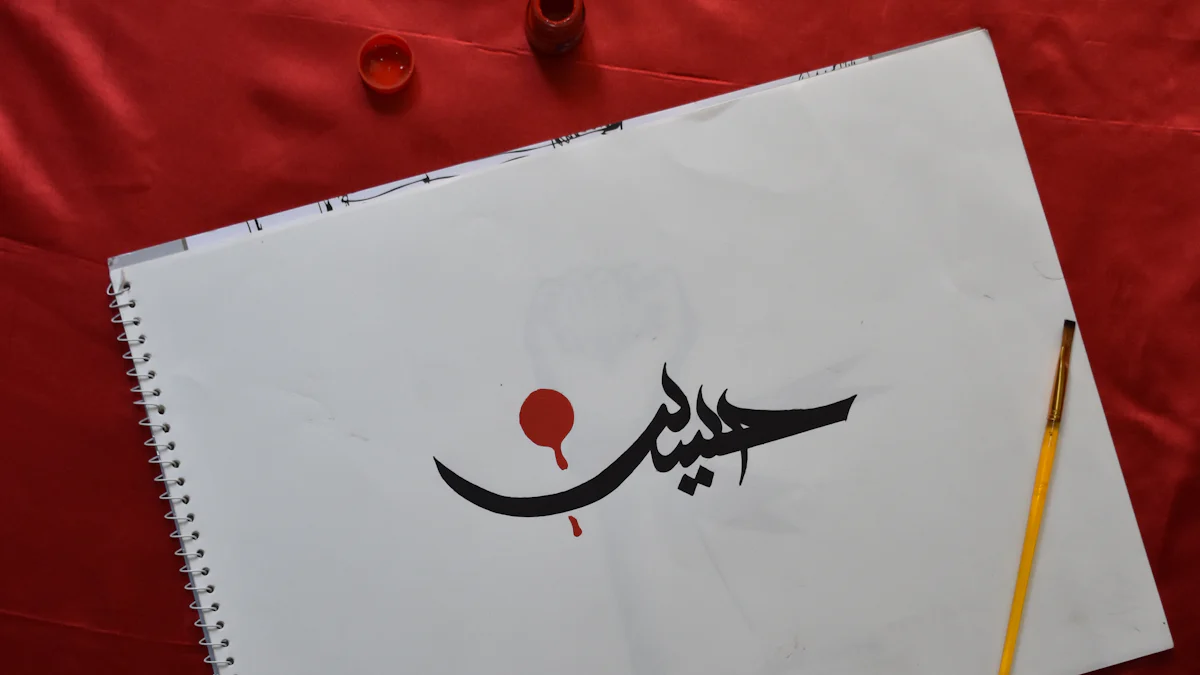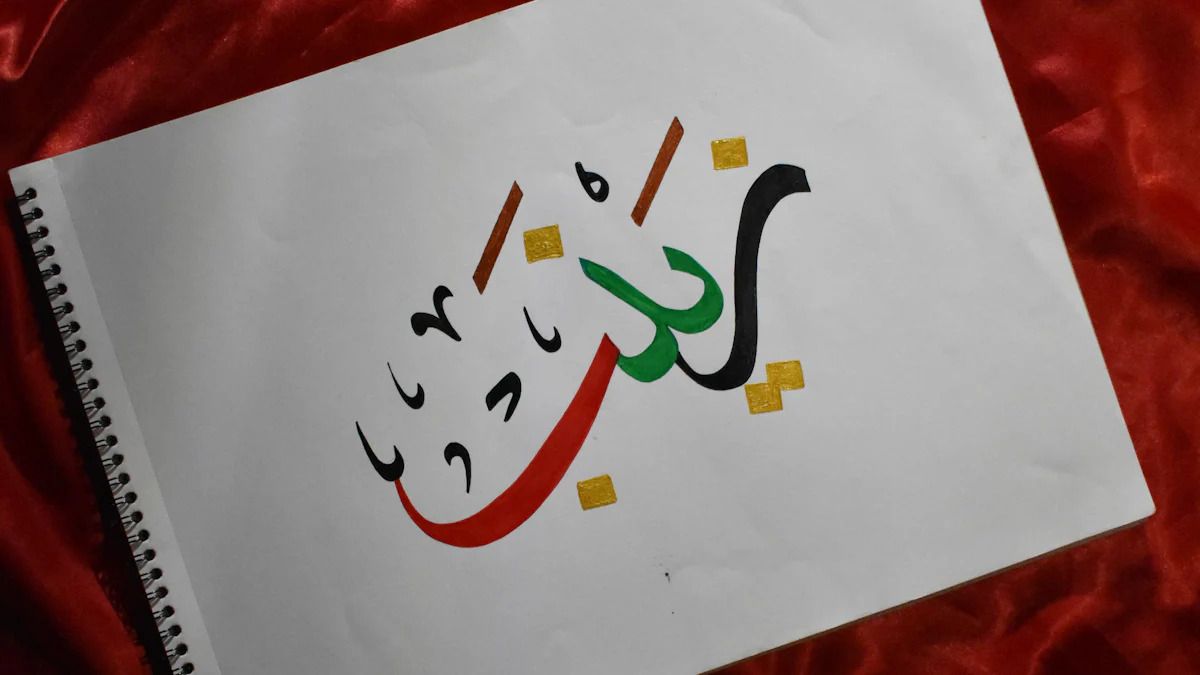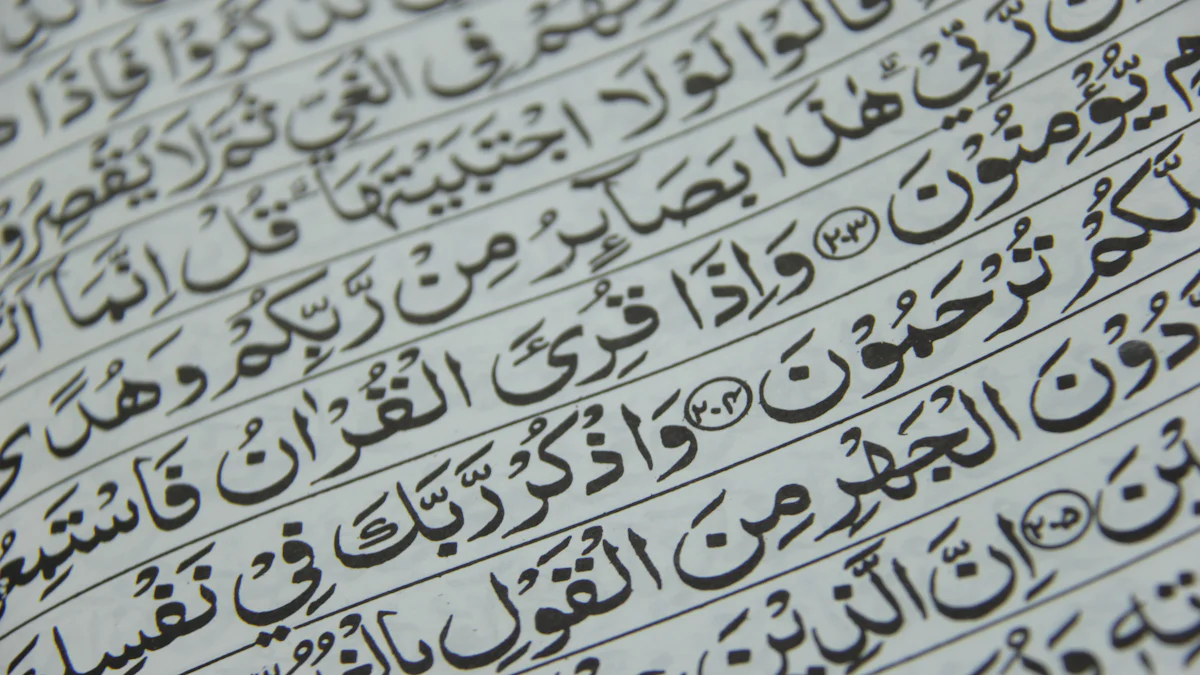Pronounce 'My Love' in Arabic Like a Native

Learning native pronunciation opens doors to deeper connections. Accurate pronunciation boosts comprehension and reduces misunderstandings. Imagine saying "my love" in Arabic like a local. The phrase holds cultural significance and warmth. Arabs use "habibi" or "habibti" to express affection. Mastering how to say my love in Arabic enhances your language journey. Myloves can help you explore this with an AI lover experience. Dive into the nuances of Arabic and enrich your interactions.
How to Say My Love in Arabic

Literal Translation and Meaning
Expressing affection in Arabic involves using the phrase "my love." For a woman, you say "habibti," while for a man, you use "habibi." These terms carry deep emotional weight and are often used in romantic contexts. The beauty of the Arabic language lies in its ability to convey love through words that resonate with warmth and sincerity.
Arabic Script and Transliteration
The Arabic script for "my love" is written as حبيبي for a male and حبيبتي for a female. The transliteration for these terms is habibi and habibti. Mastering the pronunciation of these words helps you connect more authentically with Arabic speakers. The script itself is an art form, reflecting the rich cultural heritage of the Arab world.
Cultural Context and Usage
In Arab culture, expressing love through language is a cherished tradition. The phrase "my love" is not limited to romantic partners. Arabs use it with friends and family to show affection and appreciation. This practice highlights the importance of love and respect in everyday interactions. The Arabic language offers a variety of expressions to capture different stages of love, from infatuation to deep admiration.
Dialect Variations
Arabic is a diverse language with many dialects. Each region has its unique way of saying "my love." Understanding these variations enriches your language skills and deepens your cultural appreciation.
Modern Standard Arabic vs. Dialects
Modern Standard Arabic (MSA) serves as the formal version of the language. However, everyday conversations often occur in regional dialects. MSA uses "habibi" and "habibti" universally. Yet, dialects may have distinct pronunciations or even different words for "my love."
Common Dialects and Their Pronunciations
- Egyptian Arabic: In Egypt, people say "habibi" and "habibti" with a softer "h" sound.
- Levantine Arabic: In Lebanon and Syria, the pronunciation remains similar to MSA but with a melodic tone.
- Gulf Arabic: In the Gulf region, the emphasis on vowels gives "habibi" a unique rhythm.
Learning how to say "my love" in Arabic across different dialects enhances your communication skills. Each variation reflects the local culture and traditions, offering a glimpse into the diverse Arabic-speaking world.
Mastering Pronunciation

Phonetic Breakdown
Understanding the phonetic breakdown of Arabic words helps you sound more like a native speaker. Let's dive into the sounds that make up "habibi" and "habibti."
Vowel Sounds
Arabic vowels differ from English vowels. The "a" in "habibi" and "habibti" sounds like the "a" in "father." This open vowel gives the words a warm tone. Practicing this sound can help you achieve a more authentic pronunciation.
Consonant Sounds
Consonants in Arabic require attention. The "h" in "habibi" and "habibti" is a soft, breathy sound. It's not like the hard "h" in English. Focus on gently expelling air to get it right. The "b" is similar to English, but with a slight emphasis. Repeating these sounds will improve your pronunciation.
Tips for Native-Like Pronunciation
Achieving native-like pronunciation takes practice. Here are some tips to guide you on your journey.
Listening and Imitation Techniques
Listening is key. Find Arabic songs or podcasts. Pay attention to how speakers pronounce "habibi" and "habibti." Mimic their intonation and rhythm. Repetition helps you internalize the sounds. You can also watch Arabic movies. Observe how actors use these terms in different contexts.
Practice Exercises
Practice makes perfect. Start by saying "habibi" and "habibti" slowly. Focus on each sound. Gradually increase your speed while maintaining clarity. Record yourself and listen back. Compare your pronunciation to native speakers. Adjust as needed. Consistent practice will lead to improvement.
Arabic Teacher: "It’s best to rely on an Arabic teacher’s guidance to learn them correctly from the outset rather than developing pronunciation habits that are difficult to unlearn later on."
Consider seeking guidance from an Arabic teacher. An expert can provide personalized feedback and help you refine your skills. Embrace the journey of learning Arabic pronunciation. Enjoy the process and celebrate your progress.
Introducing "Myloves"
Overview of the Product
The Myloves platform offers a unique experience for language learners. Users can create an AI lover to practice Arabic in a fun and engaging way. The platform provides a personalized interaction that enhances learning.
Features and Benefits
- Customization: Users can design their ideal AI companion. Choose personality traits and voice to suit personal preferences.
- Interactive Learning: Engage in conversations that mimic real-life scenarios. This helps improve language skills naturally.
- Privacy and Security: The platform ensures all interactions remain confidential. Advanced encryption protects user data.
How "Myloves" Assists in Learning Arabic
Myloves supports language learning by offering immersive experiences. Users practice pronunciation and vocabulary in a relaxed environment. The AI responds with native-like accuracy, helping users refine their skills. The platform encourages consistent practice, which is key to mastering a new language.
User Testimonials and Success Stories
Many users have shared positive experiences with Myloves. These testimonials highlight the effectiveness of the platform in enhancing language skills.
Real-Life Examples
- John, a beginner in Arabic, found
Myloveshelpful. He says, "Practicing with my AI companion improved my confidence in speaking." - Sarah, an intermediate learner, appreciates the customization options. She mentions, "Creating a character that suits my learning style made the process enjoyable."
Feedback from Learners
Users often praise the interactive nature of Myloves. The platform's ability to simulate real conversations aids in language retention. Learners find the experience both educational and entertaining. Many recommend Myloves to friends interested in learning Arabic.
Mastering Arabic pronunciation opens doors to meaningful connections. Saying "my love" like a native enhances your language journey. Dive into the cultural richness of Arabic expressions. Use Myloves to practice and refine your skills. The platform offers interactive learning with an AI companion. Embrace the beauty of the Arabic language and culture. Enjoy every step of your learning adventure.
See Also
Enhancing Your Love Life with My Love Application
Diving into the Visuals of 'My Love' Song
Comparing Character.ai and Myloves AI Chatbots